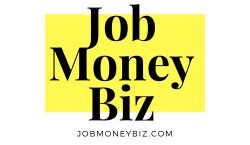Embracing a new chapter in your professional life after 50 can be both exciting and challenging. Job interviews might seem daunting, but your wealth of experience and skills can set you apart. In this comprehensive guide, we’ll provide you with insightful job interview tips for people over 50 years, helping you shine during the interview process. With a focus on addressing potential age-related concerns, we’ll empower you to approach interviews with confidence and secure the opportunities you deserve.
Job Interview Tips for People Over 50 Years
As we delve into the realm of job interview tips for people over 50 years, we’ll explore how to effectively showcase your experience, address potential concerns, and master the art of interview conversations. Let’s dive in:
Leveraging Your Experience and Skills
Highlighting your experience is your unique advantage during interviews. Here’s how to make the most of it:
- Emphasize Relevant Achievements: Craft your answers to spotlight accomplishments that demonstrate your skills’ value in the prospective role.
- Showcase Adaptability: Illustrate your ability to adapt to changing work environments by sharing examples of how you embraced new technologies or tackled challenges.
- Share Transferable Skills: Discuss skills that seamlessly translate to the desired role, proving that you’re the perfect fit.
Addressing Age-Related Concerns
Acknowledge potential concerns and dispel them with confidence:
- Stay Current: Mention recent courses or workshops to showcase your commitment to ongoing learning and professional development.
- Highlight Cultural Fit: Discuss instances where you’ve thrived in diverse workplaces, emphasizing your compatibility with various work cultures.
- Demonstrate Tech Savviness: Talk about your familiarity with relevant software and tools, assuring interviewers that you’re up-to-date with technology.
Navigating the Interview Conversation
Mastering interview conversations is essential. Here’s how to do it effectively:
- Practice Active Listening: Show your engagement by carefully listening to the interviewer’s questions and providing well-thought-out responses.
- Ask Thoughtful Questions: Prepare questions that display your genuine interest in the company’s future and your potential role within it.
- Highlight Problem-Solving: Share anecdotes where your problem-solving skills contributed to successful outcomes, underscoring your value.
Crafting Your Personal Brand
- Tell Your Story: Craft a compelling narrative of your professional journey, connecting your experiences to the role’s requirements.
- Exude Confidence: Project confidence in your body language, speech, and overall demeanor, making a lasting positive impression.
- Demonstrate Leadership: Discuss instances where you took the lead or mentored colleagues, showcasing your leadership abilities.
Dressing for Success
Your appearance plays a role in first impressions:
- Professional Attire: Choose an outfit that aligns with the company culture while presenting yourself as a polished candidate.
- Confident Presence: Wear attire that makes you feel confident and empowered, setting the tone for a successful interview.
Showcasing Enthusiasm
- Express Genuine Interest: Communicate your enthusiasm for the role and company, letting your passion shine through.
Handling Age-Related Questions
- Positive Framing: Address age-related questions positively, highlighting your experience as an asset rather than a limitation.
- Experience as Advantage: Explain how your experience enables you to bring a unique perspective and valuable insights to the role.
Handling Virtual Interviews
- Tech Preparation: Familiarize yourself with the virtual interview platform beforehand to ensure a seamless experience.
- Engaging Communication: Maintain eye contact and speak clearly to establish a connection despite the virtual setting.
FAQs (Frequently Asked Questions):
Can I address concerns about age proactively?
Absolutely. You can emphasize your relevant skills and accomplishments to showcase your value, effectively addressing any age-related concerns.
How should I discuss my experience without sounding overqualified?
Focus on sharing experiences that align with the role, highlighting your adaptability and willingness to contribute to the team’s success.
What if I lack familiarity with certain technologies?
Highlight your eagerness to learn and adapt. Mention any courses or self-learning you’ve undertaken to bridge the gap.
How do I handle virtual interviews?
Prepare by testing the interview platform, ensuring your microphone and camera work properly. Dress professionally and maintain engagement as if it were an in-person interview.
Should I include all my work history on my resume?
Include the most relevant experiences from the past 10-15 years that align with the role you’re applying for.
What if I’m asked about salary expectations?
Research the industry standard for the role and location. Provide a range based on your research and your value as an experienced professional.
Conclusion:
Navigating job interviews after 50 requires a blend of confidence, preparation, and the ability to effectively communicate your value. By leveraging your experience, addressing potential concerns, and showcasing your enthusiasm, you can stand out as a seasoned candidate. Remember, age is just a number, and your skills and expertise speak volumes about your potential contributions to any organization.
Anupam M is blogging on this site on different aspects of technology, job, and business. He is an experienced IT professional with an Engineering degree from a premier NIT. Know more

